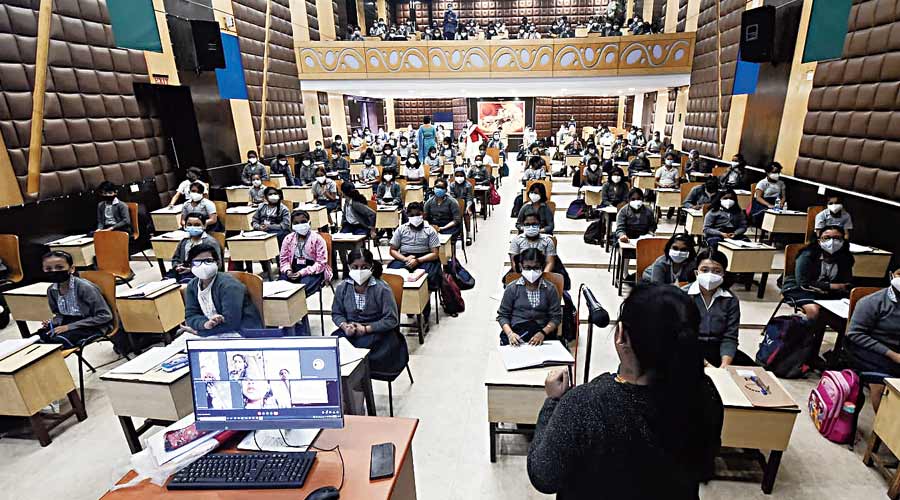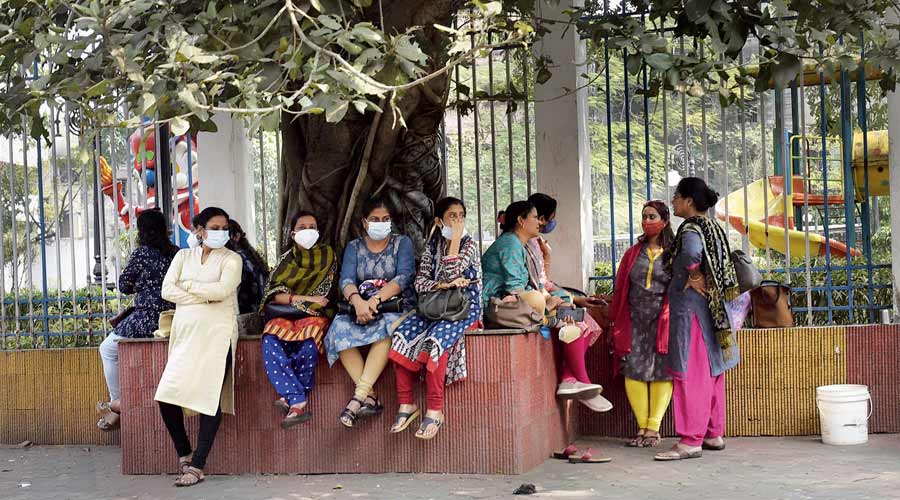In the three days since schools reopened for junior students after two years, teachers are missing the familiar buzz in classrooms and have found a section of students to be unusually quiet.
Some students are “withdrawn”, their social skills having been impacted by the long closure of schools.
Teachers and counsellors are hopeful this would pass soon and till then they would have to be patient with the children and keep a close eye on their behaviour.
The Bengal government had on Monday announced that schools could reopen for students from the pre-primary level to Class VII from Wednesday.
School heads said they are coming across students who are keeping to themselves and not responding to or not interacting with classmates.
“Two years have passed since the schools were shut down (because of Covid). Students don’t know their friends as well as they should have. The classrooms are very quiet and the buzz we heard when we walked past a classroom is no longer there,” said Father Francis Jimmy Keepuram, principal of St Lawrence High School.
Keepuram said social skills of students had suffered and interaction among themselves was not what it should have been.
Sunita Sen, principal of The BSS School, too, has observed that the long absence from school has impacted the social behaviour of the young children.
“We have to use different methods to help them bond with each other while maintaining a balance on how to protect oneself and yet be social,” said Sen.
“They were so long in an informal atmosphere at home and they will take time to settle down in school.”
Psychologists said teachers have to be “persistently patient” with the children and allow them to speak out.
“Children might have developed behavioural problems such as screen addiction and restlessness. They might have become impulsive and are not attentive to lessons. Teachers have to be proactive about the mental health of the child,” said psychiatrist Jai Ranjan Ram.
The focus, he said, should be on making the environment comfortable. The campus has to be made more attractive and teachers should be welcoming rather than authoritarian.
“Adults have to be more empathetic and not stick to expectations (from a child) because then they will be disappointed,” said psychotherapist Farishta Dastur Mukerji.
Most experts stressed that at the beginning schools should not try to enforce rules on the young children and classrooms should be more conversational, which would encourage the children to open up.
“The teacher has to be extremely patient to draw the child out,” said a head.
Teachers, Dastur Mukerji said, have to be observant of a child’s behaviour.
“They need to keep note, at least in the first three weeks, whether a child is withdrawn, becoming violent repeatedly or not being able to settle down with peers. They need to intervene if the behaviour persists,” she said.

